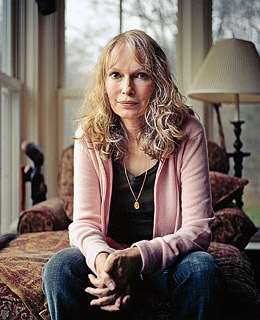
When I visited Darfur in January 2005, I noticed that what was happening there was exactly like what had happened in my country, Rwanda, between 1990 and '94. As the genocide raged in Rwanda, the rest of the world turned a blind eye. There was no help from the international community, and no hope. When I heard that people like Mia Farrow were standing up for the people in Darfur, it gave me hope.
During those troubled times, when I was working at the Mille Collines Hotel in Kigali, doing what I could to help the people there from becoming the genocide's next victims, I desperately hoped for someone in the outside world to pay attention to our plight. Farrow, 63, is that someone for the people of Darfur, especially the children.
She is saving people who have lost everything. People without food, without water. Children without schools, children without parents. Women who have lost their homes, women who cannot gather firewood without being raped by the janjaweed militia.
For her work on behalf of these people, for her many years of hard work as a UNICEF goodwill ambassador, for her efforts to get China and the rest of the world to stop supporting the government of Sudan and to pay attention to the genocide in Darfur, I salute her.
At a time in her life when many would be resting on their laurels, Farrow has chosen the path of activism by championing those who are most in need. Her humanitarian work sets a shining example for what each of us can do in our own lives to change the world.
Rusesabagina helped save 1,268 Rwandans at his hotel during the genocide